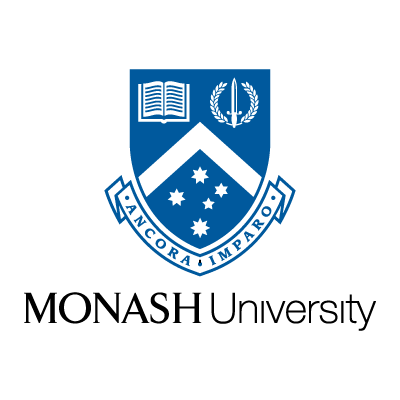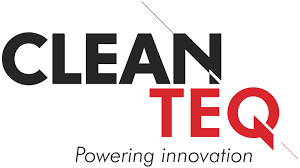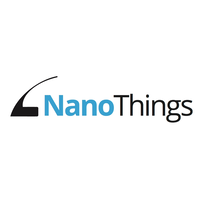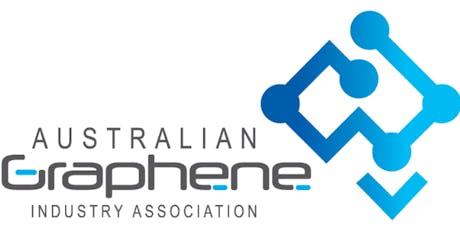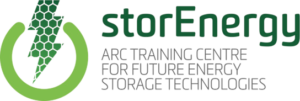Ionic’s Relationships
The strength of Ionic’s relationships is critical to our collaboration-based business model. Our relationships with various universities, industry partners and government organisations underpin our ability to identify opportunities, fund research, develop technologies and deliver products to markets.
In addition to our core relationship with Monash University, there are a number of other key relationships that reflect our success in executing our collaborative strategy.
For the past six years, Ionic has worked closely with the research teams at Monash to ensure that their outstanding work in the laboratory is used to generate benefits that reach far beyond the laboratory. Ionic embodies this vision and will continue to work with Monash to bring the technologies to market.
The Monash research team in the Nanoscale Science and Engineering Laboratory changes from time to time as different researchers contribute to the research efforts at different stages of the programs. Professor Mainak Majumder has led the team since its inception together with a number of key individuals who have contributed to the research over many years.

In September 2018, Ionic and CleanTeQ formed a Joint Venture “NematiQ” to commercialise the water treatment technology originally developed by Ionic. This represented Ionic’s first commercialisation of technology and highlights the strength of our collaboration-based business model.
In 2017 and 20187, Clean TeQ and Ionic undertook an extensive program of work together with Monash University to develop, manufacture and apply graphene oxide membranes for water filtration applications. Through this program of work, Clean TeQ and Ionic successfully developed a process to manufacture high purity graphene oxide that can be applied to a membrane support to create a highly efficient graphene nanofiltration membrane (GO-Membrane). Significantly, the GO-Membrane manufacturing process has been demonstrated on commercial scale industrial equipment.
NematiQ is focused on achieving commercial scale production of graphene oxide and GO-Membranes, as well as water purification modules targeted at wholesale and retail customers. Clean TeQ’s founder and Chief Technology Officer, Peter Voigt described the opportunity:
Through the use of advanced materials, like graphene oxide, we have an opportunity to significantly improve and grow the membrane water filtration market. Graphene’s amazing properties provide a window into a new world of water recovery and reuse.
This relationship, and the progress achieved through it, represented a major milestone for Ionic. It demonstrated that our graphene technology attracts the attention of major industry players and corporations and that it has potential applications in some of the largest and most significant global markets. It demonstrates a clear path to market and it highlights that we have a rare and valuable capability in bringing advanced technologies out of the university research environment and into commercial reality. This was Ionic’s first major step on the road to commercialising graphene technologies in an enormous range of applications and global markets.
In November 2018, we were excited to announce our Letter of Intent signed with US-based company Nanothings Inc. This was a significant step along the road to commercialising our Origami Supercapacitor technology; it demonstrated clearly who is likely to be our first customer and the extraordinary size of IoT markets we are targeting. The size of Nanothings’ own network of backers and affiliates also indicates the potential value that this LOI can bring to Ionic.
There is a rapidly growing global demand for IoT technologies. Nanothings and Ionic have valuable intellectual property, relationships and manufacturing capabilities relevant to IoT technologies and the objectives of the collaboration are to develop an energy storage solution that will enable a new generation of IoT tracking technologies based on Nanothings’ proprietary NanoTag devices.
Nanothings has proprietary technology for printed circuitry and sensor tags, firmware, and software that enable disposable, long range, low cost applications in numerous industries. To progress this technology, Nanothings requires an energy storage solution that is not currently available in the open market. Nanothings also has significant market access for its technologies through relationships with major IoT companies including Semtech, Sigfox, Senet, M2Comm and MachineQ.
Ionic has proprietary technology in the field of graphene supercapacitors that we are confident has the potential to meet the performance requirements of Nanothings’ devices.
This important relationship will see Ionic’s devices deployed in a novel application that can only be serviced with our technology, addressing enormous markets and with the potential to deliver enormous value to our shareholders in the near term.
Building on our collaborative approach to business, Ionic is also a founding member of the Australian Graphene Industry Association. The AGIA is a not-for-profit industry association. It was established both to advance the growth of Australian advanced manufacturing in Australia and to ensure that there is a trusted knowledge resource about graphene. AGIA seeks also to ensure that Australia realises the commercial opportunities associated with graphene and participates in establishing the global standards for its use. It creates linkages between industry, government, capital markets, entrepreneurs, researchers, and the community.
Together with several universities and industry partners, Ionic has formed the ARC Training Centre for Future Energy Storage Technologies. The universities include: Deakin University, University of Melbourne, Queensland University of Technology and Monash University.
This project aims to challenge existing thinking and expand Australia’s capacity in energy storage and production. There is an urgent need to work closely with industry to stay globally competitive by developing new materials and technologies in order to create efficient energy storage devices and identify ways to integrate these into end-users’ applications. At the same time, we need to equip the next generation of researchers and the energy technology workforce with the skills needed to drive innovation, exploration and investigation so we safeguard our workers and industries. By harnessing the expertise of researchers and industry partners the project aims to deliver benefit to our economy, the community and the environment.
Laminar Co. Ltd
An MOU has been entered into with Korean manufacturer Laminar Co Limited (Laminar) for the purpose of collaborating on manufacturing of graphene and graphene oxide materials. Ionic has entered into this MOU because it can see the value in combining Ionic’s technology (through Monash) with the high-volume production of graphene using Laminar’s unique capabilities.
The MOU recognises the parties have areas of mutual interest in the field of manufacturing graphene and GO materials and a common interest in cooperation in relation thereto involving:
- Exchange of information about graphene and GO materials;
- Exchange of information about methods of manufacturing, handling and applying graphene and GO materials;
- Identifying further areas for collaboration around the scientific and engineering disciplines associated with graphene and GO manufacturing;
- Identification of commercialisation opportunities, including markets, customers and commercial partnerships;
- Development and protection of intellectual property in the field of graphene and GO production; and
- Opportunities around government programs that may be used to accelerate research and development.
This MOU is the first step in establishing a relationship with Laminar that may lead to Ionic’s first revenues through licencing of its intellectual property. This initiative represents collaboration with a dynamic, progressive manufacturer that is well-aligned with Ionic’s goals and objectives as a technology platform built around expertise in graphene and GO materials.


